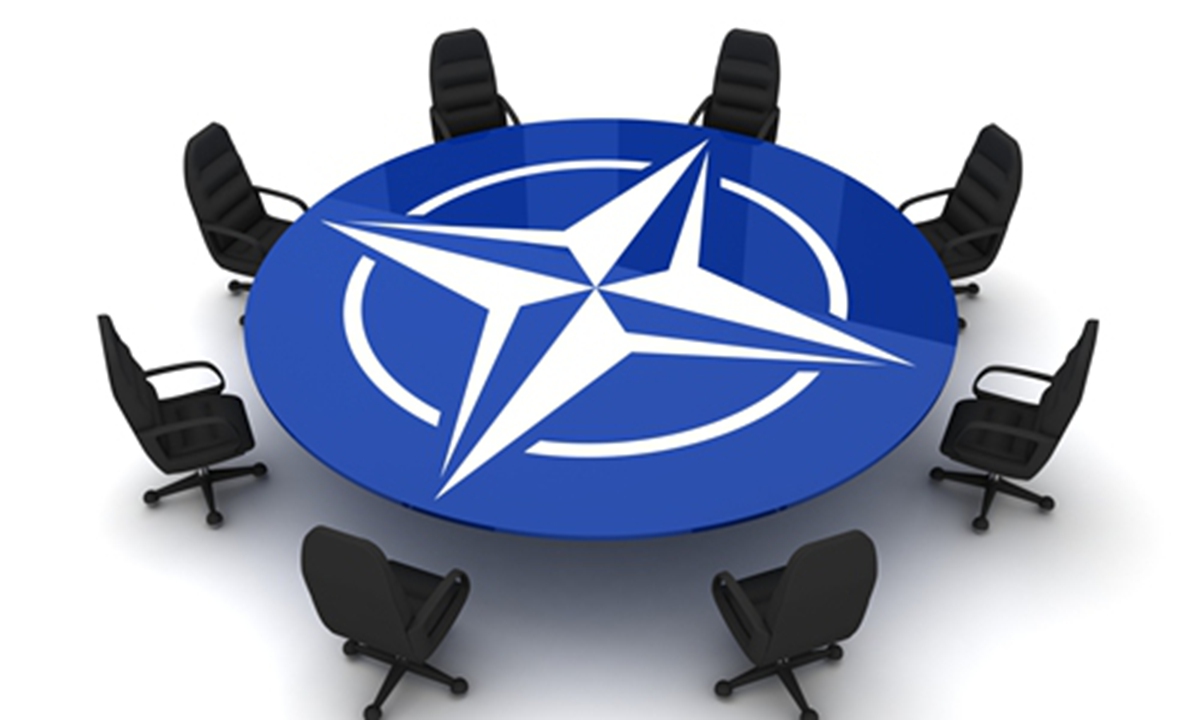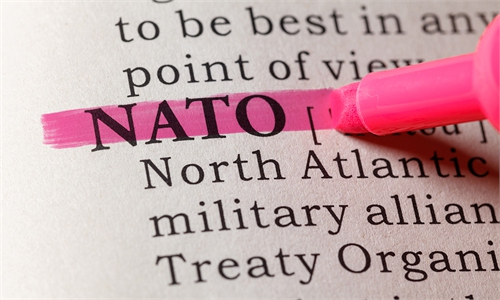
Photo: IC
NATO released a new report Tuesday entitled, "NATO 2030: United for a New Era."
The report was prepared by a group of so-called wise people who maintain outdated prejudices and a Cold War mind-set. "NATO must devote much more time, political resources, and action to the security challenges posed by China," it asserted.
Since the end of the Cold War, NATO has struggled to sustain itself. By defining China as a "challenge," NATO is trying to find an excuse for its existence. After Joe Biden was elected US president, US-Europe relations might be restored. NATO wants to take a ride of it to ensure itself a more important role in US-Europe relationship.
US President Donald Trump doesn't like NATO, neither does French President Emmanuel Macron. If things continue this way, NATO could die of natural causes. It needs China as a target in order to survive. Yet NATO is facing many internal contradictions. Fanning the flames of the scary "China threat" helps deflect its problems.
"China" is mentioned 82 times in the 67-page report, with "Russia" noted 96 times. NATO is anticipated to include China into its so-called security concept. It cannot be ruled out that China will one day be viewed as similar threat like Russia to Europe. Of course, this depends on how China will interact with NATO in the future. Meanwhile, NATO will be rethinking China as a new topic.
NATO will potentially scrutinize Chinese investment and infrastructure projects. It might deal with China according to measures it has taken (or will take) against Russia. But there will be differences, such as including economic affairs into its security scope. China's influence on Europe and the US has been much greater than that of Russia. However, if it applies "Russian approaches" on China, they will be woefully ineffective.
NATO may develop a new set of means in this endgame. For example, the bloc may try to wield larger influence on public opinions, with concerted media campaigns to cast China as an imminent or looming military threat to Europe and the US. The group may impose more tough measures to cope with China in domains where China has advantages. These will most likely involve economics, infrastructure and cyber matters. The possibility that the NATO will engage in more activities close to China's periphery cannot be ruled out. It is expected that this bloc, which has developed partnerships with South Korea and Mongolia, will ramp up its presence on China's borders.
As a response, China should talk to this transatlantic group in a bid to allay its concerns and correct its misjudgment in terms of military and security issues facing China. There are no Chinese troops stationed around NATO's borders. How could China pose security threats to NATO?
Meanwhile, China does not need to overreact to this report. Otherwise, it would happen to give the bloc a reason for internal solidarity. China has to carefully think about how to build a valid and widely accepted multilateral security system on its periphery. This must be done to reduce the impact of outside forces on the region. Divergences between NATO members will prevent them from remaining on the same page to deal with China.
NATO's European members think and behave differently than the US, and don't always do what Washington does. For example, when Brussels portrayed Beijing presented "challenges" in 2019, Washington labeled Beijing as a strategic rival.
Besides, China's economic ties with the US and Europe are stronger than Russia's. Therefore, Brussels and London will be more cautious in their dealings with Beijing than they used to with Moscow.
The real motives behind NATO's pandering to the US now are to regain US's commitment to the collective security of the organization. Indeed, they will be restoring the damage done by Trump and his team of unilateral arsonists. NATO wants the US to reaffirm its obligation to protect European countries. This includes securing military expenses and helping solve the friction that many European countries have with Turkey.
Biden is expected to stress US' security obligations, but may not make many changes to military expenses or the Turkey question. The US cannot simply bridge the divide with Europe within NATO - even under a well meaning Biden administration.
There is no effective solution so far to either the EU-US division or the differences within Europe. It is also hard for NATO to form a unified strategy toward China. After all, each member has different relations and interests with China.
China should have more dialogues with Europe and make the latter believe that China is not a threat to regional security. Moreover, NATO is a product of the bipolar confrontation of the Cold War, which does not fit the current globalized and multi-polar world. China should support Europe's strategic independence to promote the world's multi-polar positions. The Europe should not be held hostage by the greed of the US military industrial complex.
The author is director of the Department of European Studies, China Institute of International Studies. opinion@globaltimes.com.cn

